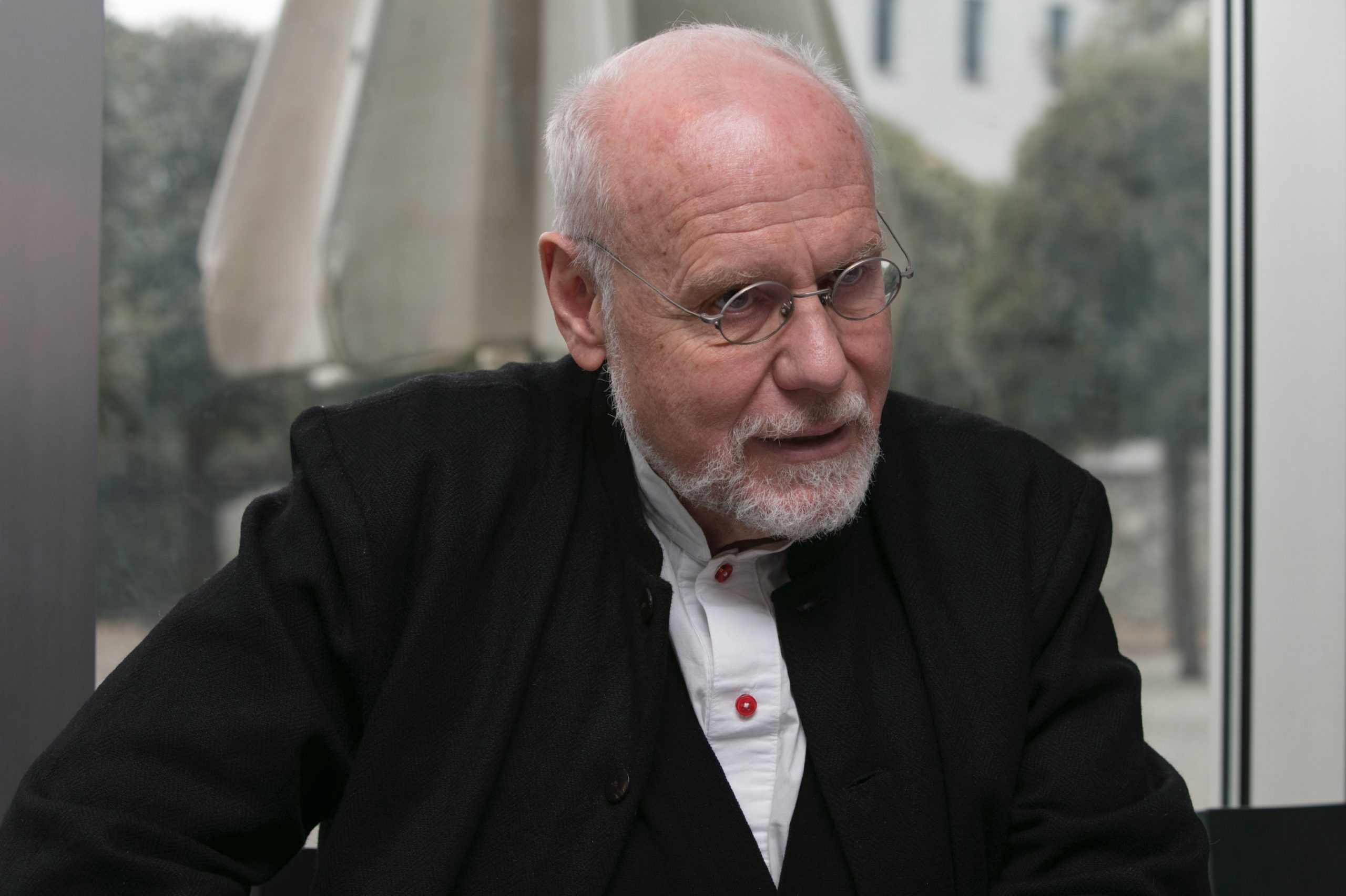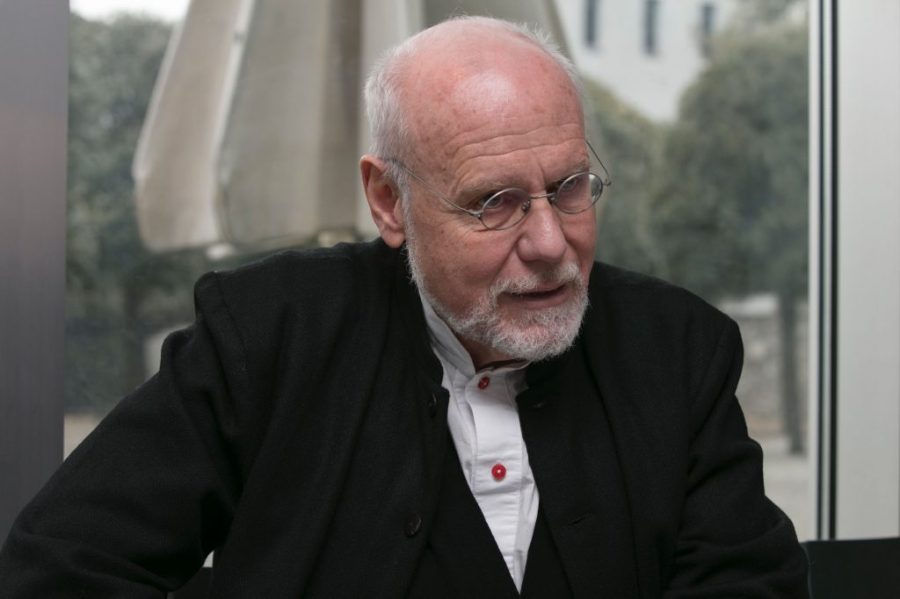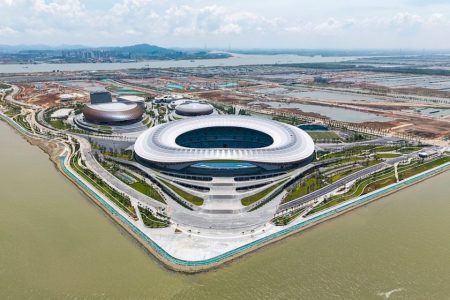Marco Müller is a man who lives and breathes cinema. In a career spanning over five decades, the Italian-born film expert and movie producer has not only helmed some of the world’s most prestigious film festivals including the Rome, Venice and Locarno film festivals, but he has also played an instrumental role in showcasing Chinese film to an international audience, especially when it was still considered something of an enigma.
The 70-year-old trailblazer, who speaks fluent Mandarin and is now based in Shanghai, has a long history with China. In 1975, he arrived in China for the first time as a young student and was exposed to Chinese classics such as Spring in a Small Town (1948) and Youth (1977) which would spark a lifelong passion for Chinese cinema.
[See more: A new film festival is coming to Macao next year]
Fast forward to the present day and the veteran festival curator is once again acting as a bridge between Chinese and international cinema with his inaugural Asia-Europe Young Cinema Film Festival, to be held in Macao from 5 to 11 January next year. According to Müller (whose last name is sometimes written Mueller), the event will focus on “new directors, their first films, and the experiences of those who have already made their second and third films.”
With less than a month left before the festival is due to kick off, Macao News caught up with the renowned film festival organiser, who spoke to us from his Shanghai office.
This interview has been edited for brevity and clarity.
Can you briefly talk about your history with Macao?
I visited Macao for the first time in 1994. The then director of the Portuguese Film Institute, Luís Mergulhão, had asked the most important producer in Portugal at the time, Paulo Branco, and myself to follow him to Macao because the Portuguese governor was very keen on starting a film festival that would be based on Portuguese and Lusophone cinema. [But] the handover of Macao to China was about to happen pretty soon, so the whole project was cancelled.
When I returned to Macao after the handover, I found that it was really becoming a very hospitable place [so] I invented the project for the first serious international film event [in Macao] at the end of 2015.
What motivated you to do this film festival in Macao?
The main reason for choosing Macao was because it is not just a hospitable environment, but it is also a concentrated environment. It has a long history of exchanges between not just China and Europe, but in a kind of 360-degree direction. Macao has always been a strong platform to represent the whole of the Greater China territories. The dialogue is not only in the direction of the West, but also in the direction of the other Asian countries.
Why did you pick Europe and Asia as the focal points of your festival?
I chose Europe and Asia for one very simple reason. If you’re talking about co-productions or co-financing, you are talking about Western Europe and Japan. [Selecting] Asia also means Macao can, in a way, become an important [centre of exchange] for Southeast Asian cinema, given the relationship that Macao always maintains with Southeast Asian countries.
[See more: Calling all local filmmakers]
How do you intend to expand and develop the Asia-Europe Young Cinema Film Festival?
The [inaugural] edition will be a way of understanding several things. On one side, [I want to see] if the government authorities and private sponsors wish to have another festival, but this time, a plain, solid, international event. On the other side, I have to understand for whom I’m doing the festival. [Personally] I’m doing the festival for the Macao filmmakers and film lovers. I think that the work of Cinematheque Passion has created a core audience [in Macao] for all kinds of films over the years. I’m also trying to understand if we can get young educated people from mainland [China] interested.
How important is it for Chinese cinema to build connections with the film industries of other countries?
It’s absolutely essential. One of the slogans that have been used in recent months (in mainland China) is to try and find a way so that “Chinese movies can go out” (中國電影走出去) and broaden the impact of Chinese cinema in the world. That, of course, has to be linked with the right market connections, which can be borne out of the festival network that will present some of the better Chinese films.
Do you think the internationalisation and commercialisation of Chinese cinema is diluting the identity of Chinese films?
On the contrary. I can give you an example from my own personal experience in the sense that when I was a producer, I produced 11 films, and only two of them were Italian. Nine of them were from different countries. Every time, I made sure that because of the involvement of an Italian person in a Chinese film, Iranian film or Brazilian film, the market potential of the film would be instantly enhanced. Of course, it also depends on the kind of relationship you can create.
Are there any young Chinese directors who you see as very promising and particularly gifted?
I can definitely disclose one of the dialogues we want to organise in Macao, the dialogue between two of the most exciting new directors to have come out of China in recent years. One is Shanghai-based Taiwanese actor and director, Lee Hong-Chi, who has won the Lion of the Future award, and the other one is Li Dongmei, whose film Mama won the Grand Prix at the Venice Days in 2020.
[See more: Macao to host a new camp for emerging Asian filmmakers]
Are there any movies that you’re really looking forward to showcasing?
All of them.
How important is having a large budget in filmmaking?
When the director has a very clear view of what story he wants to tell, the way he wants to tell it, and the money that would correspond to this, you don’t need a huge budget to make an incredibly powerful film.
I have already mentioned in [previous] interviews the name of the Iranian director, Amir Naderi. Here is somebody who was making less than US$200,000 budget films when he was in Iran and he continued to explore very personal productions when he emigrated to the US. Now that he lives in Japan, he is doing exactly the same thing when directing his own very special Japanese films.
[With this upcoming festival], we are really showing the important films made with a very limited budget and we are asking [Naderi] to talk to the young directors and to explain to young film students and young viewers the way you can control the budget of your film without giving away anything of your personal project.
What’s your take on veteran director Martin Scorsese’s comment about superhero movies not being cinema?
My opinion is very clear. I think what is terrible is when lots of young people only watch superhero movies. They also cannot recognise the very special, unique, individual superhero movies … [But] I think you cannot put everything in the same basket. Some superhero movies have shown some individuality and probably the large majority of them are just run-of-the-mill serial productions.






